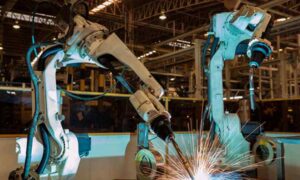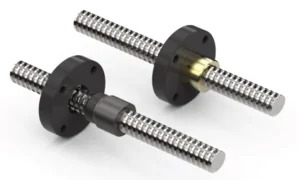In today’s fast-paced industrial landscape, innovation in automation has become a cornerstone for maintaining competitiveness. Modern manufacturers are under immense pressure to streamline production processes, reduce operational downtime, and cut costs without compromising quality. Emerging startups are playing a pivotal role in bridging the gap between cutting-edge technologies and real-world industrial applications. By introducing agile, scalable solutions, these innovators are redefining traditional workflows and addressing long-standing inefficiencies that have plagued industries for decades.
One standout example is Xindustra, a dynamic startup that has rapidly gained recognition in the industrial automation sector. Specializing in high-quality automation components, Xindustra caters to the rigorous demands of modern manufacturing and processing facilities. From precision sensors to robust control systems, their product portfolio is designed to enhance operational reliability while minimizing disruptions during upgrades. What sets Xindustra apart is its commitment to delivering not just parts, but end-to-end solutions that empower businesses to achieve seamless transitions to smarter automation frameworks.
A critical pain point for many industries lies in supply chain inefficiencies. Legacy procurement processes often involve manual data entry, fragmented communication, and delayed approvals—factors that lead to inflated costs, missed deadlines, and production bottlenecks. Xindustra tackles these challenges head-on by deploying digital tools such as AI-driven demand forecasting and blockchain-enabled traceability. These technologies enable real-time inventory tracking, automated order prioritization, and predictive maintenance scheduling. For instance, their cloud-based procurement platform reduces lead times by 40% and cuts human error by 90%, ensuring manufacturers receive critical components precisely when needed.
Beyond supply chain optimization, Xindustra excels in deploying Programmable Logic Controllers (PLCs) and Human-Machine Interfaces (HMIs) tailored to industrial needs. PLCs automate complex machinery operations, from assembly lines to chemical processing units, while HMIs provide operators with intuitive dashboards for real-time monitoring and adjustments. A recent case study highlights how a food processing plant integrated Xindustra’s PLC-HMI systems to reduce energy consumption by 25% and improve safety compliance through automated hazard detection. This synergy of hardware and software exemplifies how traditional industrial engineering is evolving into a data-driven discipline.
The rise of advanced manufacturing technologies further underscores the need for adaptive solutions. Robotics, machine learning, and the Industrial Internet of Things (IIoT) are no longer optional—they are essential for achieving scalability and flexibility. Xindustra stays ahead of the curve by incorporating collaborative robots (cobots) that work safely alongside human workers and AI algorithms that optimize production schedules based on real-time demand fluctuations. For example, their AI-powered predictive analytics tool helped an automotive supplier reduce material waste by 18% by dynamically adjusting machine parameters during high-volume runs.
Procurement strategies are also undergoing a transformation. Xindustra’s digital procurement ecosystem integrates vendor management, dynamic pricing models, and sustainability metrics into a unified platform. By leveraging big data analytics, clients gain visibility into supplier performance, carbon footprints, and cost trends—enabling informed decisions that align with both economic and environmental goals. This approach not only streamlines purchasing but also builds resilient supply chains capable of weathering disruptions like geopolitical shifts or raw material shortages.
Xindustra’s holistic vision for industrial automation demonstrates that solving modern challenges requires a blend of innovation, expertise, and foresight. By prioritizing quality, efficiency, and technological agility, the company has cemented its role as a catalyst for the Fourth Industrial Revolution. As industries navigate increasing complexity, pioneers like Xindustra will continue to drive progress toward a future where automation is not just a tool, but a strategic asset for sustainable growth.





























